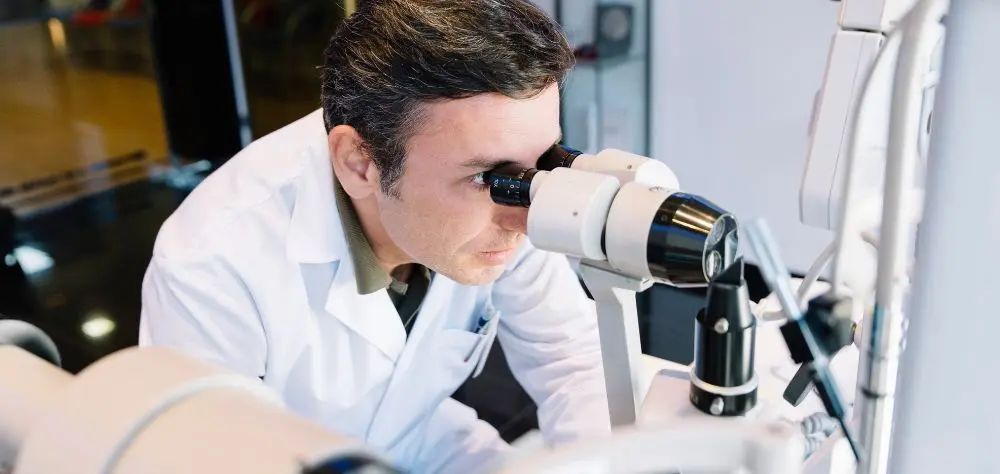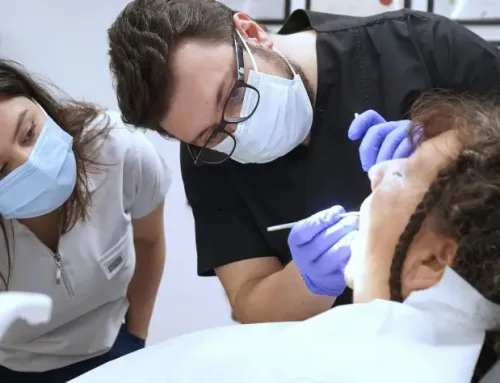Here’s How To Increase Your Optometry School Acceptance Rates

How to get into optometry school? It’s a question more aspiring students are asking as interest in eye health careers grows. With limited program spots and increasing competition, securing your place requires more than meeting basic requirements. It’s about demonstrating excellence across academics, experience, and your overall application.
Strategic preparation is your key to standing out. By excelling in prerequisite coursework, gaining hands-on experience in optometry settings, and crafting a compelling application, you can greatly enhance your acceptance chances. With focus and determination, you’ll be one step closer to achieving your dream of becoming an optometrist in this rewarding and impactful field.
The Road to Optometry: Why Admission Is So Challenging
Optometry school admissions are increasingly competitive due to a limited number of programs, rigorous criteria, and growing interest in healthcare careers. For aspiring optometrists, understanding the challenges can help you strategize and strengthen your application to secure a coveted spot.
Limited Number of Programs
The number of accredited optometry schools in the U.S. is relatively small, with each program admitting a finite number of students annually. With growing interest in the field, this limited capacity heightens the competition. Aspiring students must excel academically and stand out in other areas to increase their chances of acceptance.
Comprehensive Admissions Criteria
Admissions committees don’t just look at grades—they evaluate applicants holistically.
- Academic Excellence: A strong GPA, particularly in science courses, is critical.
- Relevant Experience: Shadowing optometrists or working in eye care settings demonstrates commitment.
- Personal Qualities: Strong communication skills, empathy, and problem-solving abilities are often assessed during interviews.
Applicants who balance academic success with hands-on experience and personal growth are better positioned to stand out.
Rising Interest in Healthcare Careers
As the demand for healthcare professionals grows, more students are considering careers in optometry. The profession’s unique blend of science, patient interaction, and specialized care attracts a diverse range of applicants, making the competition for limited spots even fiercer.
Meet and Exceed Prerequisite Requirements
Prerequisite courses are the gateway to optometry school, ensuring students are equipped with the foundational knowledge necessary for success.
Core Subjects: Focus on excelling in biology, chemistry, physics, and math, as these are often mandatory for admission.
Target Performance: Aim for top grades, as these courses are weighted heavily during the admissions process.
Plan Strategically: Review each program’s specific prerequisites early and tailor your coursework accordingly.
Meeting these requirements isn’t just about ticking boxes; it’s about showing your readiness for the challenges ahead.
Strengthen Your GPA
A strong GPA demonstrates academic discipline and readiness for optometry school’s rigorous curriculum.
- Time Management: Develop a schedule that prioritizes studying while balancing other commitments.
- Seek Help When Needed: Use tutoring, office hours, and study groups to master challenging material.
- Retake Courses: If a prerequisite grade is less than ideal, consider retaking the course to improve your GPA and understanding.
Consistency is key. A solid GPA reflects your ability to handle demanding coursework and thrive under pressure.
Stand Out with Advanced Science Courses
Taking upper-level science courses like biochemistry, microbiology, or anatomy can significantly enhance your academic profile (consider SCU’s Post-Baccalaureate or Master’s Programs). These classes mirror the rigor of optometry school, allowing you to demonstrate your ability to excel in challenging subjects. Admissions committees often view strong performance in these courses as a clear indicator of future success in the program.
One of the most impactful options? Our Master of Science in Medical Science (MSMS) program. Designed to reflect the rigor and pace of professional healthcare education, the MSMS offers advanced science training that helps you stand out. With a curriculum modeled after the first year of medical school, plus personalized academic support and real-time performance feedback, it’s an ideal way to show admissions committees you’re ready to succeed.
Academic excellence is more than just grades—it’s about showcasing your dedication, work ethic, and ability to master complex concepts. Admissions committees look for students who will thrive in both academic and clinical settings, and a strong academic record is your first step in proving you have what it takes.
How Gaining Experience Can Shape Your Optometry Career
In the competitive world of optometry school admissions, hands-on experience is essential. Engaging directly with the field helps you understand the profession, develop practical skills, and demonstrate your passion. Shadowing optometrists, volunteering in healthcare settings, and working in related roles can make your application stand out.
Shadow Optometrists
Shadowing is one of the most valuable ways to gain firsthand insight into the daily life of an optometrist.
Explore Diverse Settings: Shadow optometrists in private practices, retail environments, and clinics to understand the various aspects of the profession.
Ask Questions: Use the opportunity to learn about patient care, diagnostic tools, and the challenges of the field.
Strengthen Applications: Admissions committees value applicants with a clear understanding of the profession, which shadowing provides.
Shadowing isn’t just an observational activity; it’s a chance to confirm your passion for optometry while gaining invaluable exposure.
Volunteer in Healthcare Settings
Volunteering in healthcare-related settings is a powerful way to demonstrate your commitment to helping others.
- Vision Screenings and Community Events: Participate in events that bring eye care to underserved communities.
- Non-Profit Work: Get involved with organizations dedicated to improving public health and vision care.
These experiences highlight your dedication to public health and give you a chance to interact with patients, developing your interpersonal skills.
Work in Related Roles
Hands-on roles in optometry clinics or healthcare settings can provide unparalleled experience and practical skills. Jobs like optometric assistant or technician allow you to work closely with professionals, learning about equipment, procedures, and patient interaction. These roles also prepare you for the practical aspects of optometry school and demonstrate your readiness for the field.
Stand Out from the Crowd: Building a Stellar Optometry Application
Your optometry school application is your opportunity to shine. A compelling personal statement, strong letters of recommendation, and a well-rounded profile are key to standing out. By showcasing your passion, resilience, and leadership, you can leave a lasting impression on admissions committees.
Craft a Compelling Personal Statement
Your personal statement is a chance to share your unique story and why optometry is your calling.
- Show Your Passion: Write about experiences that inspired your interest in optometry and how they shaped your career goals.
- Demonstrate Resilience: If you’ve overcome challenges, explain how they made you stronger and prepared you for this journey.
- Focus on the Future: Clearly outline your aspirations and how you plan to contribute to the field of optometry.
A great personal statement isn’t just about listing accomplishments; it’s about showing admissions committees who you are and why you’re an ideal candidate.
Secure Strong Letters of Recommendation
Choosing the right recommenders is critical. Opt for professors, supervisors, or professionals who know you well and can highlight your strengths.
- Provide Context: Share your goals and achievements with your recommenders to help them write detailed, personalized letters.
- Diversify Your Recommendations: Include letters that address different aspects of your abilities, such as academics, leadership, or clinical experience.
Strong recommendations validate your readiness for optometry school and provide an outside perspective on your potential.
Highlight Extracurricular and Leadership Roles
Extracurricular activities and leadership positions can set your application apart by showing you’re more than just academics. Participation in student organizations, community service, or leadership roles demonstrates your ability to manage responsibilities, work with others, and make meaningful contributions to your community.
Ace the Optometry School Admissions Process
The optometry school admissions process might feel overwhelming, but with the right approach, you can navigate it successfully. From excelling in the Optometry Admission Test (OAT) to tailoring your applications and mastering interviews, every step offers an opportunity to showcase your readiness and passion for the field.
Prepare for the Optometry Admission Test (OAT)
The OAT is a critical part of your application, designed to assess your academic readiness and problem-solving skills.
- Study Strategically: Focus on subjects like biology, chemistry, physics, and math. Use prep books, online resources, or formal OAT courses to structure your study plan.
- Practice Makes Perfect: Take multiple practice tests to familiarize yourself with the format and timing, ensuring you’re confident and prepared on exam day.
Scoring well on the OAT demonstrates your ability to handle the academic challenges of optometry school.
Research Schools and Tailor Applications
Every optometry school is unique, with its own values, mission, and admissions criteria.
- Do Your Homework: Research the schools you’re interested in to understand their specific requirements and preferences.
- Personalize Your Approach: Customize your personal statement and application to reflect why each program aligns with your career goals and values.
Tailored applications show genuine interest and help you stand out from other candidates.
Practice for Interviews
The interview is your chance to shine and make a memorable impression. Prepare by researching common questions, practicing your answers, and even role-playing with a mentor or friend. Focus on presenting your passion for optometry and your ability to articulate your experiences confidently. A strong interview can reinforce your qualifications and enthusiasm for the program.
Long-Term Strategies to Enhance Competitiveness
Building a competitive edge for optometry school requires careful planning and consistent effort. Engaging in research, staying informed about industry trends, and pursuing advanced education can set you apart. These strategies don’t just enhance your application—they prepare you to excel as a future optometrist.
Engage in Research Opportunities
Participating in research related to vision science or public health showcases your commitment to advancing the field of optometry.
- Stand Out: Research experience demonstrates critical thinking, problem-solving, and dedication—qualities admissions committees value.
- Explore Your Interests: Projects in areas like ocular health, technology in vision care, or public health can deepen your understanding of the field.
Whether through academic labs or volunteer initiatives, research is a powerful way to enhance your application and gain valuable insights.
Stay Informed on Trends in Optometry
Admissions committees value applicants who display a genuine interest in the evolving landscape of optometry. Stay updated on advancements like tele-optometry, AI in diagnostics, and new treatment methods. Discussing these trends in interviews or essays highlights your passion and forward-thinking approach.
Consider Post-Baccalaureate or Master’s Programs
For applicants aiming to enhance their academic credentials, pursuing further education can be a transformative step toward gaining acceptance into optometry school. Programs like SCU’s Master of Science in Medical Science (MSMS) offer a targeted approach to boosting your academic profile and preparing for the demands of professional healthcare education.
The MSMS program mirrors the rigor of a first-year optometry school curriculum, covering advanced sciences such as anatomy, biochemistry, and physiology. This structured preparation demonstrates to admissions committees that you are academically ready and equipped for success.
Key Benefits of Our Program:
- Rigorous Coursework: Gain in-depth knowledge in foundational sciences, including anatomy, biochemistry, and physiology.
- Flexible Learning Options: Choose from fully online or hybrid remote formats to balance education with work and personal commitments.
- Customizable Schedules: Opt for the 11-month accelerated track or a more flexible 20-month part-time schedule to fit your needs.
- Career Preparedness: Develop the academic confidence and perseverance that admissions committees value in top candidates.
Graduates of the MSMS program often find this experience invaluable, not only for strengthening their academic foundation but also for highlighting their resilience and dedication. Admissions committees take note of these qualities when evaluating applications.
Preparing for Optometry School? SCU is Here to Help
How do you get into optometry school when competition is tougher than ever? By crafting a standout application that showcases academic strength, relevant experience, and personal dedication. This article has highlighted the importance of excelling in prerequisite courses, gaining hands-on exposure, and presenting a polished application to admissions committees.
If you’re ready to take your optometry school application to the next level, SCU’s Master of Science in Medical Science (MSMS) program can provide the foundation you need. With flexible formats and a rigorous curriculum, this program is designed to make your goals achievable. Explore the requirements and apply today!
FAQs
How do you get into optometry school?
To get into optometry school, you’ll need a strong GPA, solid OAT scores, relevant healthcare experience, and a compelling application. Demonstrating a genuine passion for eye care and showcasing unique experiences can set you apart from other candidates.
What prerequisites are required for optometry school?
Most programs require courses in biology, chemistry, physics, anatomy, and math. Strong grades in these areas demonstrate academic readiness and ensure you’re well-prepared for the rigorous optometry curriculum.
Do optometry schools require the OAT?
Yes, many optometry schools require the Optometry Admission Test (OAT) to evaluate academic readiness. It covers natural sciences, physics, reading comprehension, and quantitative reasoning. Scoring well can significantly enhance your application.
How can shadowing an optometrist help my application?
Shadowing provides firsthand insights into the profession and shows admissions committees your commitment to understanding the field. It’s also a great way to strengthen your personal statement with real-world observations.
Can I apply to optometry school with a low GPA?
Yes, but you’ll need to demonstrate academic growth through post-baccalaureate coursework, a strong OAT score, or a graduate program like the MSMS to showcase your ability to succeed in advanced studies.
Related Posts




